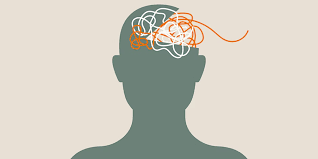Attention Deficit Hyperactivity Disorder (ADHD) is a cognitive disorder that causes people to have trouble focusing, be hyperactive, and act without thinking. ADHD mostly affects kids, but it can last into adults and have a big effect on many areas of life, like eating habits and health in general. People with ADHD often have problems controlling their emotions, acting on impulse, and staying focused, all of which can lead to poor eating habits and lifestyle choices. Being careful about what you eat, on the other hand, can help you deal with ADHD symptoms and form healthier habits.
How ADHD affects eating habits and what you can do about it
Executive functioning problems are often linked to ADHD. This includes controlling impulses, staying organized, and keeping your emotions in check. These issues can affect eating habits, causing people to eat too many high-calorie foods, have unpredictable eating patterns, and have trouble telling the difference between hunger and fullness. Impulsivity can lead to mindless eating, where people eat without paying attention to their hunger cues or the sensory experience of eating. Distractibility can lead to impulsive eating behaviors, like binge eating or emotional eating.
Also, people with ADHD may be more likely to develop other health problems at the same time, like obesity, emotional eating disorders, and other health problems linked to bad food choices. When ADHD signs are combined with bad eating habits, it can lead to a cycle of bad outcomes that affects health, happiness, and quality of life as a whole.
Mindful eating can help people with ADHD.
Mindful eating comes from the practice of awareness, which means focusing on the present moment without judging it. It encourages people to be aware of their thoughts, feelings, and sensory experiences while they eat. This helps them make better decisions about what they eat and build a healthier relationship with it. Using mindful eating methods can help people with ADHD in a number of ways, including:
Increased Awareness: Mindful eating makes people more aware of the signs of hunger and satiety, which helps them tell the difference between eating because they are hungry and eating because they are tired, stressed, or impulsive. People can make better choices about when, what, and how much to eat by paying attention to their feelings and bodily cues.
Better Self-Regulation:
People with ADHD can improve their self-regulation skills, such as controlling their impulses and emotions, by practicing mindfulness. They can stop, notice their thoughts and feelings, and choose a reaction that fits with their long-term health goals instead of giving in to the urge to eat.
Better sensory experience:
Mindful eating pushes people to use all of their senses while they eat, savoring the tastes, textures, and smells of their food. This enhanced physical experience can make meals more satisfying and enjoyable, which can make people less likely to overeat or look for unhealthy foods to satisfy their hunger quickly.
Less stress and anxiety:
People with ADHD often have higher amounts of stress and anxiety at the same time. Mindful eating techniques, like deep breathing and being aware of your body, can help people with ADHD deal with stress better, which can keep them from overeating when they’re stressed and make meals more relaxing.
Mindful Decision-Making:
People with ADHD can be more aware of other parts of their lives, like food choices, meal planning, and store shopping, if they practice mindfulness while they eat. To improve their health, they can learn to be more selective about the nutrients in foods, choose healthy options first, and plan their meals with care.
Tips for Making Mindful Eating Work for People with ADHD
Mindful eating can be hard to do every day, especially for people with ADHD who have trouble staying focused and being consistent. But there are a few easy things that can be done to get around these problems and make mindful eating easier to do:
Start Small:
Start by being aware during one meal or snack every day. Pick a time to eat when you won’t be interrupted, and just enjoy the act of eating. As you get used to thoughtful eating, add it to other meals and snacks little by little.
Set Goals:
Before you eat, take a moment to think about what you want to get out of the meal. Saying “thank you” for the food or making a promise to eat carefully without judging could help. Setting goals helps you become more mindful and keeps you practicing.
Use your senses:
Pay attention to how food looks, smells, tastes, feels, and sounds while you eat. Slowly and deliberately take bites, enjoying each one and paying attention to any feelings that come up.
Mindful Breathing:
Do deep breathing routines during meals to help you relax and be more aware of the present moment. Focus on the feeling of the breath going in and out of your body as you take a few deep breaths before you eat.
Develop the ability to not judge:
Be open and curious about what you’re eating, and don’t judge yourself for the foods you choose or call them “good” or “bad.” Instead, be kind and compassionate to your thoughts and feelings as you watch them come and go without getting attached to them.
Reminders for Mindful Eating:
Some things that can help you remember to eat mindfully are putting a mindfulness bell on the table or setting a timer to remind you to stop and feel your food.
Learn to be kind to yourself:
As you learn how to practice mindful eating, be kind and patient with yourself. Coming up against problems and hurdles is a normal part of the journey. Being kind and patient with yourself can help you move forward.
Including mindful eating in plans to treat ADHD
Mindful eating can help with ADHD treatments like medicine, therapy, and changes to the way you live. Mental health professionals, dietitians, and other health care providers can help people with ADHD by including mindful eating techniques in their overall treatment plans. These plans can be customized to fit the person’s needs and preferences.
Mindfulness-based stress reduction (MBSR) or mindful eating classes are two types of group-based mindfulness programs that can help people with ADHD who want to change their eating habits. They can provide support and a sense of community. These programs give structured advice, useful exercises, and chances for people to help each other, which makes mindful eating more effective.
Including mindful eating in schools, workplaces, and community groups can also help people understand the problems that come with ADHD and give them the tools they need to change the way they eat and take care of themselves. By encouraging a mindset of mindfulness and acceptance, these settings can help people with ADHD do well and put their health first.
In conclusion
For people with ADHD, controlling their eating habits and staying healthy can be especially hard. However, mindful eating could help people become more aware, better at controlling themselves, and happier. By practicing mindfulness while eating, people with ADHD can improve their overall quality of life, build healthier relationships with food, and get better at controlling their emotions and impulses. Mindful eating can help people with ADHD take care of their physical, emotional, and mental health in the long run if they keep at it, get help, and be kind to themselves.




